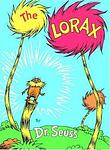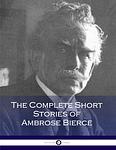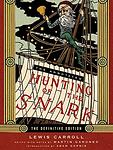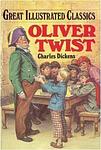The Greatest "Satire, Juvenile" Books of All Time
Click to learn how this list is calculated.
This list represents a comprehensive and trusted collection of the greatest books. Developed through a specialized algorithm, it brings together 300 'best of' book lists to form a definitive guide to the world's most acclaimed books. For those interested in how these books are chosen, additional details can be found on the rankings page.
Genres
Satire is a genre of literature that uses humor, irony, and exaggeration to criticize and ridicule human vices, follies, and shortcomings. It is a form of social commentary that aims to expose the flaws and absurdities of society, politics, and culture. Satirical books often employ sarcasm, wit, and parody to challenge the status quo and provoke thought and reflection in readers. Satire can be both entertaining and thought-provoking, and it has been used throughout history as a powerful tool for social and political critique.
The Juvenile category of books typically refers to literature that is written for children and young adults, typically between the ages of 8 and 18. These books are often characterized by their age-appropriate themes, language, and content, and are designed to engage and entertain young readers while also providing educational value. Juvenile books can cover a wide range of genres, including fiction, non-fiction, fantasy, science fiction, and more, and are an important part of the literary landscape for young readers.
Countries
Date Range
Reading Statistics
Click the button below to see how many of these books you've read!
Download
If you're interested in downloading this list as a CSV file for use in a spreadsheet application, you can easily do so by clicking the button below. Please note that to ensure a manageable file size and faster download, the CSV will include details for only the first 500 books.
Download-
1. Adventures of Huckleberry Finn by Mark Twain
The novel follows the journey of a young boy named Huckleberry Finn and a runaway slave named Jim as they travel down the Mississippi River on a raft. Set in the American South before the Civil War, the story explores themes of friendship, freedom, and the hypocrisy of society. Through various adventures and encounters with a host of colorful characters, Huck grapples with his personal values, often clashing with the societal norms of the time.
-
2. Gulliver's Travels by Jonathan Swift
This classic satire follows the travels of a surgeon and sea captain who embarks on a series of extraordinary voyages. The protagonist first finds himself shipwrecked on an island inhabited by tiny people, later discovers a land of giants, then encounters a society of intelligent horses, and finally lands on a floating island of scientists. Through these bizarre adventures, the novel explores themes of human nature, morality, and society, offering a scathing critique of European culture and the human condition.
-
3. Slaughterhouse-Five by Kurt Vonnegut
The novel follows the life of Billy Pilgrim, a World War II veteran who has become "unstuck in time," experiencing his life events out of order. This includes his experiences as a prisoner of war in Dresden during the Allies' firebombing, his post-war life as a successful optometrist, his abduction by aliens from the planet Tralfamadore, and his eventual death. The book is a critique of war and a demonstration of the destructive nature of time, with a nonlinear narrative that reflects the chaos and unpredictability of life.
-
4. Gravity's Rainbow by Thomas Pynchon
Set during the end of World War II, the novel follows Tyrone Slothrop, a lieutenant in the U.S. Army, as he tries to uncover the truth behind a mysterious device, the "Schwarzgerät", that the Germans are using in their V-2 rockets. The narrative is complex and multi-layered, filled with a vast array of characters and subplots, all connected by various themes such as paranoia, technology, and the destructive nature of war. The book is known for its encyclopedic nature and its challenging, postmodernist style.
-
5. The Adventures of Oliver Twist by Charles Dickens
This classic novel follows the life of a young orphan named Oliver Twist, who endures a miserable existence in a workhouse and then is placed with an undertaker. He escapes and travels to London where he meets the Artful Dodger, a member of a gang of juvenile pickpockets led by the elderly criminal, Fagin. Despite numerous adversities, Oliver remains pure at heart and is eventually saved from a life of crime, revealing his true identity and claiming his rightful inheritance.
-
6. Haroun and the Sea of Stories by Salman Rushdie
The book is a fantastical children's novel that explores the importance of storytelling. It follows the journey of a young boy named Haroun who sets out on a magical adventure to restore his father's ability to tell stories. Along the way, he encounters a vast array of colorful characters and strange lands, including a Sea of Stories. The narrative addresses themes of censorship, the power of storytelling, and the struggle between light and darkness.
-
7. The Lorax by Dr. Seuss
In a world where greed and destruction prevail, a curious young boy seeks answers about the disappearance of trees and the strange creature called the Lorax. Through an enchanting tale, Dr. Seuss sheds light on the importance of environmental conservation and the devastating consequences of human exploitation, inspiring readers to take responsibility for protecting the Earth's natural resources.
-
8. The Complete Short Stories Of Ambrose Bierce by Ambrose Bierce
"The Complete Short Stories of Ambrose Bierce" is a collection of gripping and thought-provoking tales that showcase the author's mastery of the short story form. Bierce's stories delve into the dark recesses of the human psyche, exploring themes of war, death, and the supernatural. With his sharp wit and incisive writing style, Bierce crafts narratives that are both entertaining and deeply unsettling, leaving readers pondering the complexities of the human condition long after they have finished reading.
-
9. The Hunting of the Snark: An Agony, in Eight Fits by Lewis Carroll
"The Hunting of the Snark: An Agony, in Eight Fits" is a whimsical and absurd narrative poem that follows a crew of nine peculiar characters, including a Bellman, a Baker, a Barrister, and a Broker, on a sea voyage in search of a mythical creature known as the Snark. The journey is fraught with strange events and nonsensical encounters, all portrayed with the author's characteristic blend of logic and lunacy. The story concludes with the Baker's mysterious disappearance after he encounters what he believes to be the Snark, leaving readers to ponder the true nature of this elusive creature.
-
10. America by John Stewart
This book offers an insightful, satirical take on American history and contemporary American politics. The author uses humor and wit to present a critique of various aspects of American society, government, and culture, from the founding fathers to the Bush administration. The book is filled with clever commentary, fake news articles, and humorous graphics, and it encourages readers to question the status quo and think critically about the state of their nation.
Reading Statistics
Click the button below to see how many of these books you've read!
Download
If you're interested in downloading this list as a CSV file for use in a spreadsheet application, you can easily do so by clicking the button below. Please note that to ensure a manageable file size and faster download, the CSV will include details for only the first 500 books.
Download








